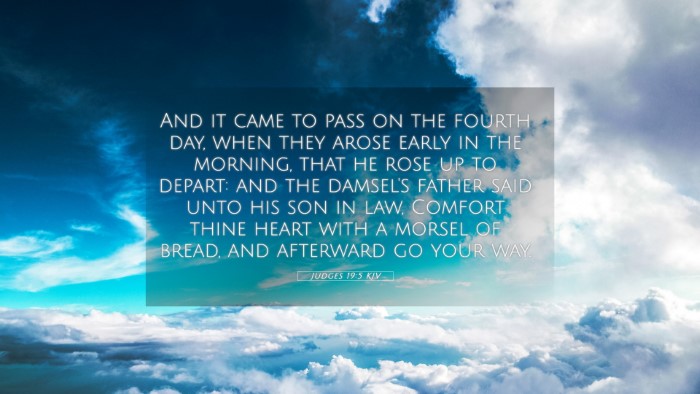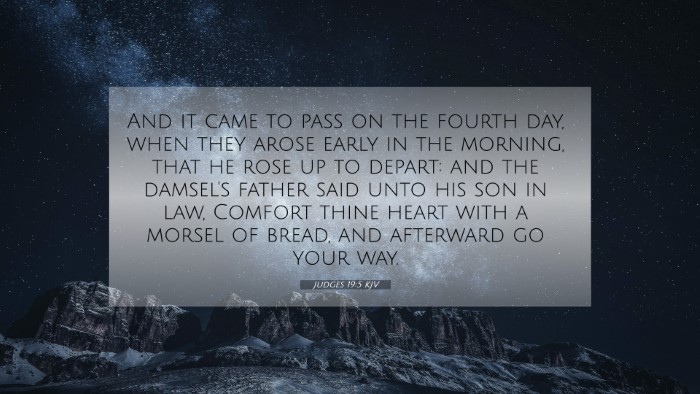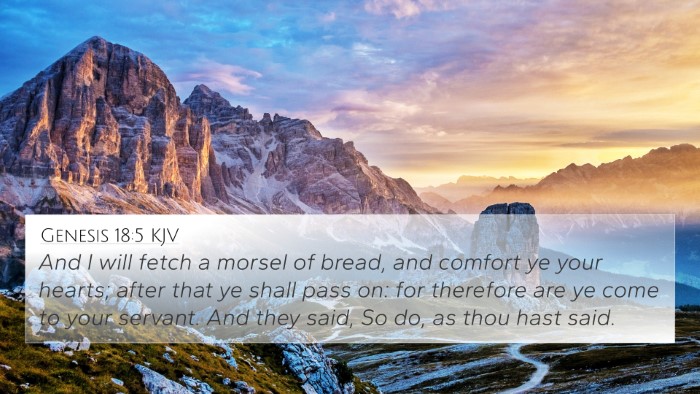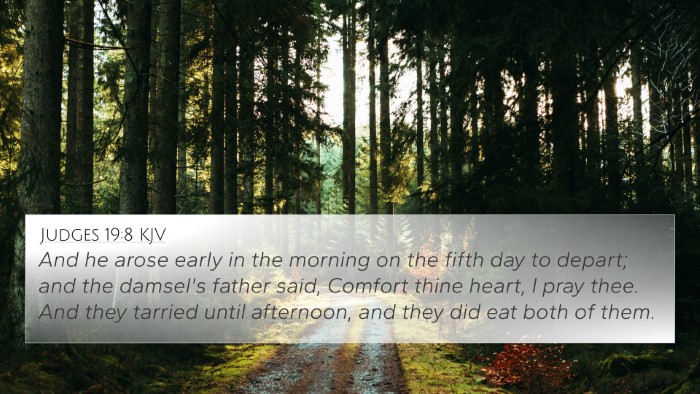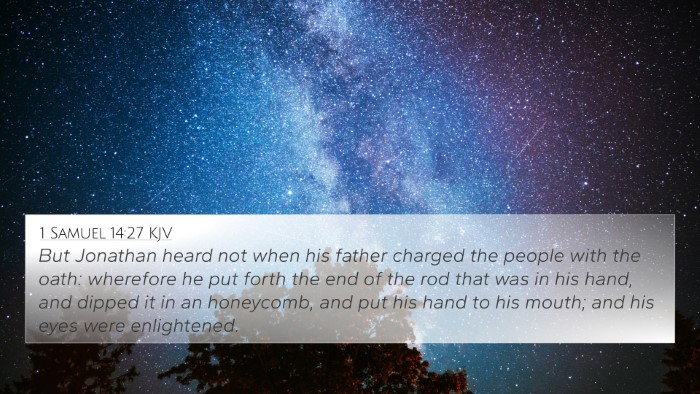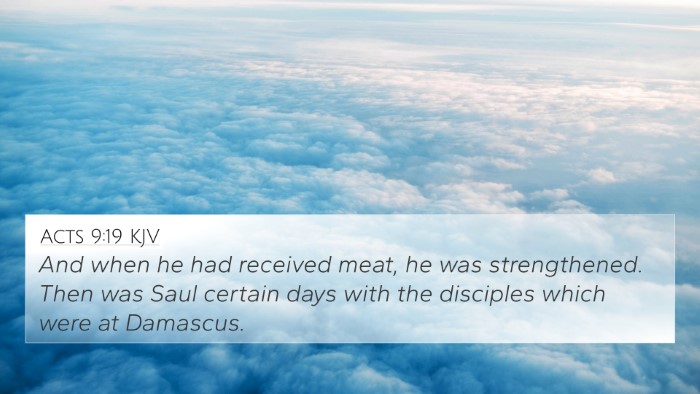Understanding Judges 19:5
Judges 19:5 recounts a pivotal moment in the biblical narrative, illustrating social issues and the plight of individuals during a tumultuous time in Israel's history. This verse can be examined through various commentaries that provide deep insights into its meaning and implications.
Verse Context
Judges 19 describes the story of a Levite and his concubine, emphasizing themes of hospitality, violence, and moral decay in Israel. The context is vital for understanding the significance of Judges 19:5, where the Levite leaves his father-in-law's house to return home.
Combined Commentary Insights
-
Matthew Henry's Commentary:
Henry describes the Levite's journey as indicative of the moral state of Israel. He emphasizes the challenge that hospitality presented, as the Levite's situation highlights both the necessity and the absence of compassion within society. The phrase "after they had eaten and drunk" signals the significance of fellowship and the breakdown of community bonds.
-
Albert Barnes' Notes:
Barnes notes that the verse shows the Levite's intention to return home but reflects on the sorrow of the concubine's departure. He focuses on the relationship dynamics and suggests this moment foreshadows the tragic events that follow, which serve as a warning to Israel about the consequences of their actions.
-
Adam Clarke's Commentary:
Clarke provides a critical analysis of hospitality norms at the time, pointing out that the Levite’s experience mirrors the dire circumstances in which the Israelites dwelled. Clarke also emphasizes the need for vigilance and the implications of a society that neglects the safety of its members.
Thematic Connections
Judges 19:5 connects deeply with various themes in the Bible. It emphasizes the concepts of:
- Hospitality
- Justice and Injustice
- Community Responsibility
- Divine Judgment
- Moral Decay and Social Breakdown
Cross-References
Here are some Bible verses that relate to Judges 19:5, illustrating its themes and providing a comparative analysis:
- Genesis 19:1-3: The hospitality shown by Lot, contrasting with the events in Judges.
- Matthew 25:35-40: Jesus' teaching on hospitality and care for others, highlighting the continuous biblical call to serve the marginalized.
- Acts 2:44-45: The early church's unity and sharing, reflecting a positive model of community that Judges lacks.
- Romans 12:13: The encouragement to practice hospitality as a moral duty.
- Lamentations 3:34-36: A reminder of God’s justice and the consequences of human malpractice in society.
- Luke 10:30-37: The parable of the Good Samaritan, emphasizing the need for compassion in a fractured world.
- 1 Peter 4:9: A call to show hospitality without grumbling, which reflects the societal expectations in biblical times.
Inter-Biblical Dialogue
The connections between Judges 19:5 and these other scripture passages reveal recurring themes of hospitality and moral obligation across both the Old and New Testaments. Understanding these thematic Bible verse connections provides a richer comprehension of biblical principles regarding community and individual responsibility.
Practical Applications
In studying Judges 19:5, readers are encouraged to reflect on their own societal structures and relationships. The verse challenges individuals to consider:
- How one can provide support and hospitality to those in need.
- The ways in which communities can restore moral standing.
- Personal responsibility to protect the vulnerable within society.
- The importance of understanding historical and cultural contexts in scriptural interpretation.
Conclusion
Judges 19:5 serves as a mirror reflecting both the societal issues of its time and the eternal themes relevant throughout scripture. Cross-referencing provides a valuable framework for understanding this passage in light of the broader biblical narrative, encouraging deeper investigation into how these verses, when linked together, reveal God's enduring messages concerning justice, community, and compassion.

